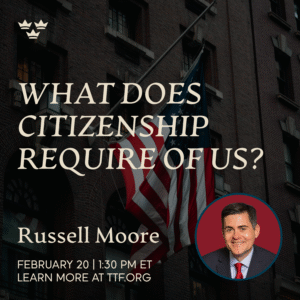[vc_row row_padding_bottom=”30″][vc_column][textbox title=”Hospitality and Healing” title_color=”#2f2f2f” title_fontsize=”40″ text_under_align=”center” subtitle=”Cherie Harder” subtitle_color=”#757575″ content_align=”center”][/vc_column][/vc_row][vc_row][vc_column width=”1/6″ css=”.vc_custom_1547644032611{margin-top: 20px !important;border-top-width: 0px !important;padding-top: 10px !important;padding-right: 10px !important;padding-bottom: 10px !important;padding-left: 10px !important;background-color: #eeeeee !important;border-top-style: solid !important;}”][imagebox image_url=”14483″ image_hover=”disable”][/vc_column][vc_column width=”5/6″][vc_column_text]Thursday, March 30, 2017
It is a strange irony: at the most globally connected moment in all of human history, we are lonelier than ever.
Even as our social media connections grow, so do our rates of living alone, and our reported feelings of loneliness and estrangement. A survey published by the AARP found that as many as a third of Americans over the age of 45 reported being chronically lonely – up from only one in five a decade earlier. And since loneliness is often concentrated among the elderly, the swell of aging boomers makes it likely that loneliness will become even more widespread.
The consequences of loneliness are significant and sobering. Long-lasting loneliness can not only sicken, but kill its sufferers. By some measures, reported loneliness is as significant a factor in mortality as smoking; other studies have shown that it can cause or exacerbate a range of physical and mental illnesses including cancer, heart disease, obesity, diabetes, and Alzheimer’s.
The health risks of loneliness aren’t limited to individuals, but also bedevil the body politic. Some of the most difficult and seemingly intractable political problems of our time – growing polarization, a loss of faith in governing institutions, the breakdown of family and community, the decline of civic participation, and the concentration of poverty and addiction in particular rural and urban enclaves – either arise from, or are exacerbated by, the loss of personal relationships and connections, and our growing alienation from each other.
Moreover, the ravages of loneliness tend to most hurt those already hurting. Sociologist Charles Murray wrote in his insightful book Coming Apart that the four great social trends of the past fifty years – the decline of marriage, the erosion of a shared work ethic and respect for the law, and dwindling religious observance and church attendance – have not only isolated individuals from each other, but also more deeply affected individuals and communities already lacking other forms of social capital. The result is that loneliness and its attendant pathologies are most virulent in the neighborhoods least fortified to resist them.
But one of the simplest, most effective antidotes to loneliness is the simple practice of hospitality. Merely opening one’s home to others also opens possibilities for new or deepening connections and friendships. The toxicity of loneliness lies in the feeling of rejection more than mere alone-ness; hospitality is an antidote to rejection, offering welcome, inclusion, and warmth. Whether one extends or receives it, hospitality acts to defuse suspicion, erode barriers to connection, and build up good will. As Henri Nouwen observed: “Hospitality means primarily the creation of free space where the stranger can enter and become a friend instead of an enemy. Hospitality is not to change people, but to offer them space where change can take place. It is not to bring men and women over to our side, but to offer freedom not disturbed by dividing lines.”
Christianity is not the only faith that encourages, even commands, hospitality, but the frequency with which it is mentioned in both Old and New Testaments is uncanny. The reader is repeatedly urged to open one’s home, to entertain and care for strangers, and to love one’s neighbor.The potency of hospitality in enabling us to better know and care about (and for) our neighbors may help explain how often it is mentioned, and even included as a qualification for church leadership.
In a recent New York Times column, David Brooks wrote: “Souls are not saved in bundles. Love is the necessary force… The problems facing this country are deeper than the labor participation rate and ISIS. It’s a crisis of solidarity, a crisis of segmentation, spiritual degradation, and intimacy.”
Battling that crisis may demand more than hospitality, but will never be resolved without it. And in that crisis is an opportunity for both church communities and lone parishioners to show the healing love of God to those wounded and worn down from loneliness – and address one of the greatest cultural threats of our time not by waging war, but by opening a hospital.
Recommended Readings & Resources
- Isak Dinesan, “Babette’s Feast,” The Trinity Forum Reading, 2010.
- Yuval Levin, The Fractured Republic, New York: Basic Books, 2016.
- Charles Murray, Coming Apart, New York: Crown Forum, 2012.
- Flannery O’Connor, “Revelation,” The Trinity Forum Reading, 2005.
- Judith Shulevitz, “The Lethality of Loneliness,” The New Republic, May 13, 2013
Cherie Harder is the President of the Trinity Forum.[/vc_column_text][/vc_column][/vc_row]


